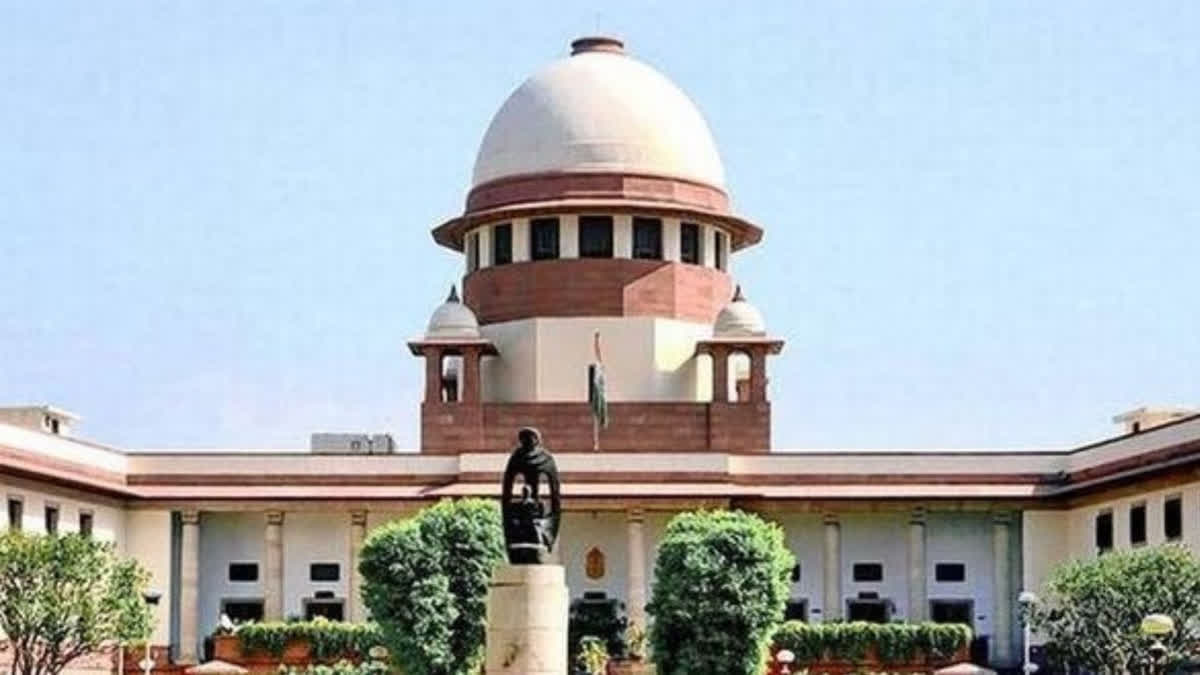New Delhi: The Supreme Court Wednesday said it has to examine whether its three-judge bench PMLA verdict needs reconsideration by a larger bench of 5 judges, while hearing a batch of pleas seeking reconsideration of the July 2022 judgment of the apex court upholding the validity of the provisions of the Prevention of Money Laundering Act (PMLA), despite Centre and the Enforcement Directorate (ED) vehemently opposing it.
A three-judge bench comprising justices S K Kaul, Sanjiv Khanna, and Bela M Trivedi told senior advocate Kapil Sibal, assisted by advocate Sumeer Sodhi, Congress leader Govind Singh, that the review jurisdiction is limited. Sibal said at the moment my lords can hear whether it needs a larger bench. The bench said the contours seem to be whether the decision of the 3-judge bench needs reconsideration by a larger bench of 5 judges. “I think only that is before ... Beyond that we do not have a mandate to go ...”, said justice Kaul.
Sibal argued that the 2022 judgment failed to note that in Section 50 (2) deals with “investigation” which is defined in Section 2(1) (na) of PMLA, and the judgment interpreted “investigation” contrary to its explicit meaning given in Section 2(1) (na), and erroneously held that at the stage of summons under Section 50 PMLA, the investigating officer is not conducting an investigation. “These conclusions are manifestly erroneous and deserve to be reconsidered”, said Sibal.
“Prevention of Money Laundering Act (PMLA) insofar as it allows for an officer of the Enforcement Directorate (ED) to summon any person to record his statement during the course of an investigation [Section 50(2) PMLA], require the said person to tell the truth in such statement [Section 50(3) PMLA] and to sign the said statement [Section 63(2)(b) PMLA], under the threat of penalty [Section 63(2) PMLA] or arrest [Section 19 PMLA] is violative of Articles 20(3) and 21 of the Constitution”, said Sibal’s submissions before the apex court.
During the hearing, Justice Trivedi queried Sibal that in summons you may be called as a witness also, maybe you know something about the accused. Sibal said the person has the right to know why he has been summoned.
Justice Trivedi queried Sibal, how is summons violation of Article 21? Is life and liberty deprived when you are asked to give information? Sibal said but I must know what I am called for and stressed, “liberty is the heart of the CrPC (Criminal Procedure Code) and when we are called under 161 for statement we are called as witness only, we know”. Sibal said, in such a situation, one cannot exercise his constitutional rights, “because I do not know why I am called and I can be arrested”.
Justice Trivedi, at a later stage in the hearing, further queried Sibal, were you in opposition when PMLA was enacted in 2002? Sibal said that is not fair and it may have been enacted and amended by one party but “we never envisioned it would be enforced in this way”. Citing ADM Jabalpur and A K Gopalan cases, Sibal said judgments are set aside because new paradigms emerge regarding liberty of the people.
Sibal said if I'm being summoned, I should be told why and if I'm involved in any predicate offence, I should be told about it. He said because before the summons are executed, I may exercise my rights, for whatever they are worth. Sibal argued that in tax evasion cases, the ED was invoking PMLA by alleging that the offence of criminal conspiracy was involved.
Sibal submitted before the bench, “We have reached a stage where the ED, and I quote and I use this expression intentionally, is an unruly horse. It can go anywhere it wants. And what it does is. It does not tell you whether you are being called as a witness or an accused…”. While the Centre’s counsel argued that the Prevention of Money Laundering Act (PMLA) was an “important legislation” for the nation.
The bench made an oral remark that tax evasion cases cannot be portrayed as a criminal conspiracy, only to invoke the PMLA. “If the Directorate of Enforcement says that by adding (Section) 120B IPC to a non-scheduled offence, cognisance can be taken under the PMLA to register an ECIR, then I have an issue…..”, said justice Khanna.
Solicitor General Tushar Mehta, appearing for the Centre, expressed his strong reservations at the petitioners allegedly expanding the scope of the hearing through amendments to their petitions. Mehta said that the entire Act was now sought to be challenged, instead of some provisions, as earlier indicated, and if the court was allowing such an amendment, then the government authorities would need time to file a reply.
Sibal urged the court to refer the matter to a five-judge bench and argued that the questions of law involved may be better determined by a constitution bench. The arguments in the matter will continue tomorrow.



